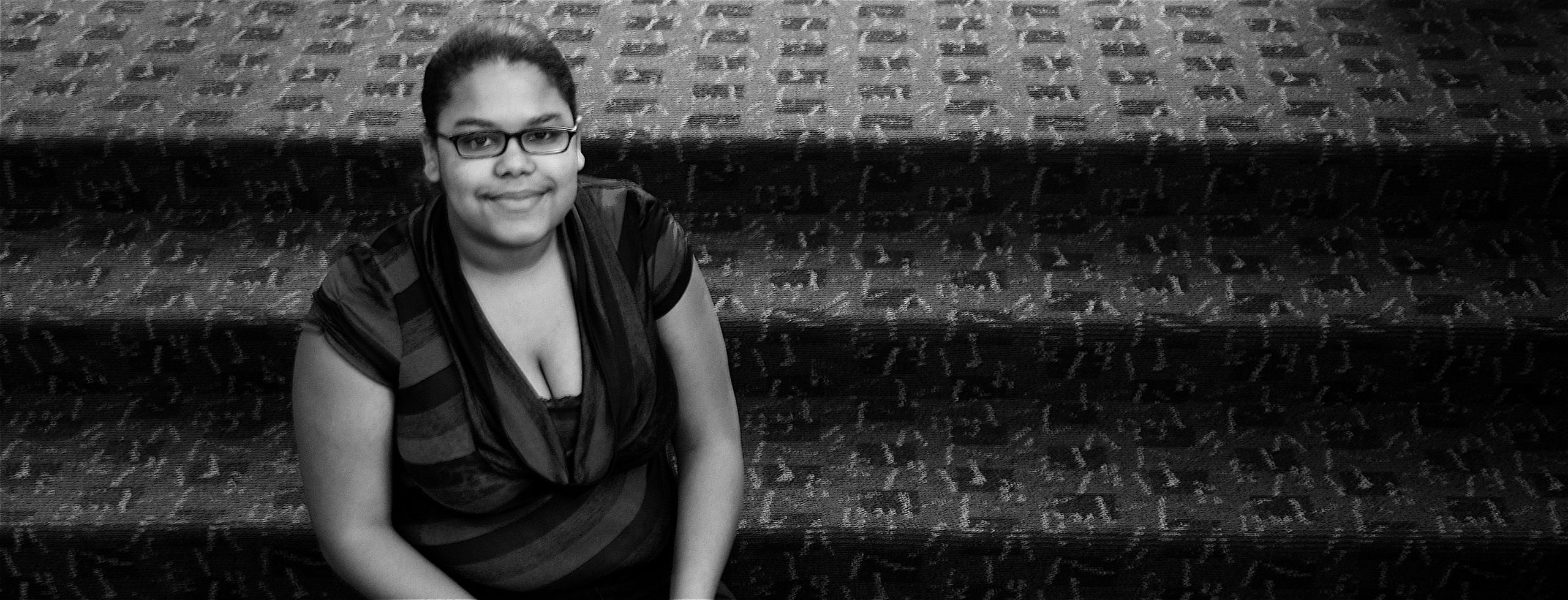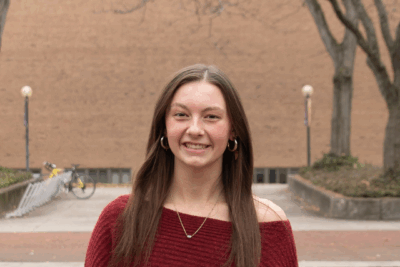Krystel, a sophomore environmental science major, is a member of the newly formed Swim Club. She is part of a grazing research project and has also worked on an arboretum project at Witmer Woods.
Facts about Haiti:• Capital: Port-au-Prince
• Official Languages: French and Creole
• Total Population: 9,719,932
• Land Size: Haiti is 10,714 square miles and is roughly the size of Massachusetts.
• Cost of round trip: $500 – $800
• Football (soccer) is the national sport. In Haiti there are avid fans and bitter rivalries between fans of both the Brazilian and Argentinian national football teams.
• Although many think that Haiti is deforested, there are a lot of beautiful views and places that have dense forest cover.
• Haiti was the first post-colonial independent black-led nation in the world.
Information from the CIA World Factbook and CNN World
1. What do you miss the most from Haiti (Besides family)?
I mostly miss the pace at which things are done back home. It is more relaxed and lateness is tolerated well.
2. What do you like and dislike about America?
What I like: Everything is very easily accessible. I can go shopping and buy food and at the same time buy clothes at the malls.There are also a lot of opportunities (internships for students and jobs) which are not as easy to come by in Haiti.
What I do not like: I do not like the pace here in the U.S.; it is too fast. I also feel left out sometimes in conversations that relate to common experiences that Americans share, for example, childhood experiences in elementary school or shows people watch. I also feel as though the community is too close knit and it is difficult for me to get in these kind of circles.
3. What is your favorite childhood experience?
My favorite childhood experience was when my family went to the countryside. On the way we stopped by my mother’s country house and there were a lot of mangos in the yard, so we collected them and walked to a river that was close by. At the river we sat by rocks and just ate one after the other. Eating them was kind of a mess because they were so juicy and whenever we took a bite the juice just dripped onto our hands.
4. What did you think about America before coming here?
To me, America was a place to spend a vacation and also a place to refresh my wardrobe with new clothes and shoes from all the shopping.
5. What inspired you to come here?
Since I wanted to study environmental science, there were no programs in Haiti that focused on this and so I came to Goshen. My connection with Goshen dates back in time when Goshen had an SST group that was led by Arlin Hansberger. At the time my mother was looking for a college to go to, so Arlin suggested that she consider Goshen College and she did.
6. What are some differences between the American and Haitian culture?
The pace at which things are done. In Haiti, if you arrive on time people will say that you are too early. The food has a lot of flavor and it takes time to cook, sometimes even the whole day. In terms of politics, there are no defined roles in (Haitian] government and corruption is still rampant, but there is considerable progress being made on all these fronts.
In terms of privilege, I feel as though whites have privilege, whereas back home in Haiti the color of your skin does not entail that but rather how much money you have. I also see a difference in treatment of the elderly; here, the elderly are put into nursing homes whereas back home they are taken care of by various members of the family. It is also very common to see random people helping the elderly.
7. What does a typical day look like for you in Haiti?
During the school week, my day started at 5 a.m. I had to leave the house by 6 because of traffic. Once I got to school I would hang out with my friends until classes started at 8. I would be in school until 3 after which I would play basketball with my friends until 5. I would then get home at around 7 and have dinner with my family, finish up my homework until 11 and then go to bed.
During the weekends I would get up at 8 and have breakfast; after that I would visit my friends in the neighborhood, come back home and have lunch and then go back and play with my friends.


